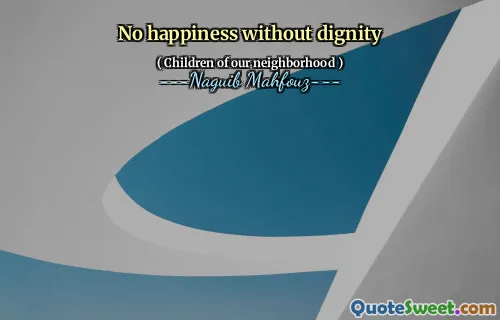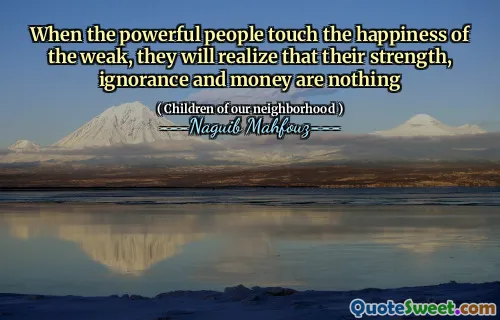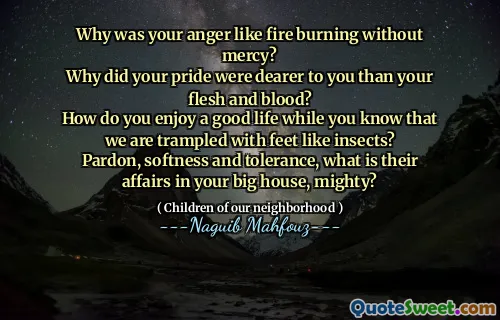
And our hotness never knew justice and peace. This is what he had eliminated since Adham and Omaima were expelled from the big house. Do you not know this, Jablawi? It seems that injustice will intensify the intensity of its darkness whenever the silence is long.
The quote reflects on the themes of injustice and turmoil following the expulsion of Adham and Omaima from their home. The narrator suggests that the absence of peace and justice led to an increase in suffering and despair, highlighting how silence can amplify the darkness of injustice in society. This message resonates throughout Naguib Mahfouz's "Children of Our Neighborhood," capturing the struggles of the characters in a world that has become chaotic and oppressive.
Mahfouz emphasizes the emotional and psychological impact of injustice, suggesting that the conditions of society directly affect the individuals within it. Through the narrative, the characters grapple with the consequences of societal neglect and the weight of their collective experiences. The quote serves as a poignant reminder of how the absence of justice can lead to a deeper, more pervasive sense of despair, illuminating the connection between personal and societal struggles.











